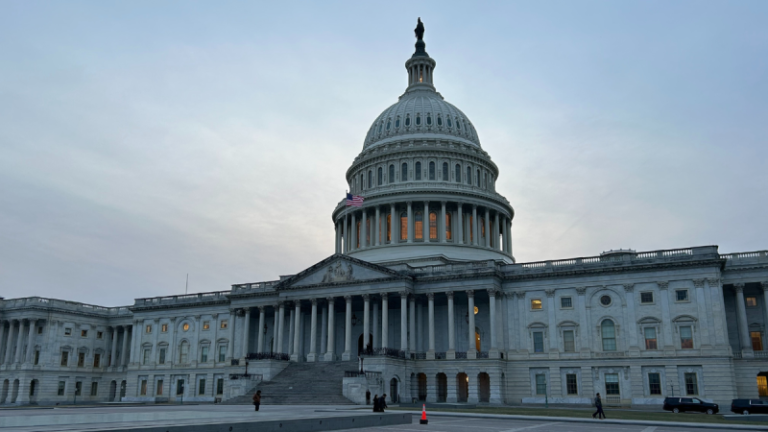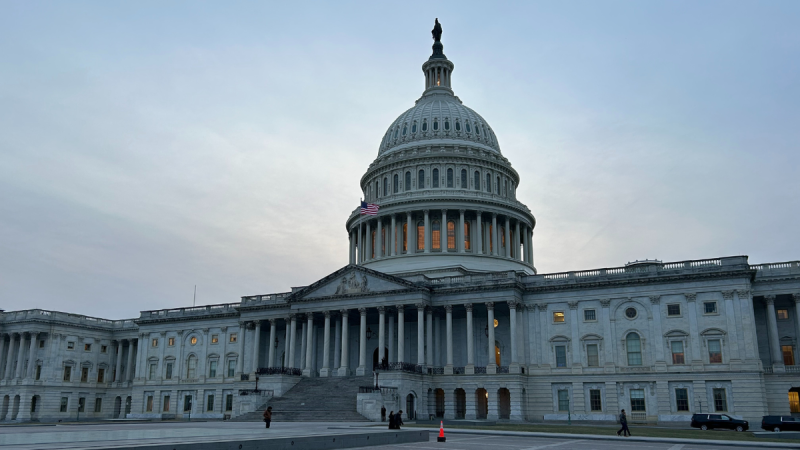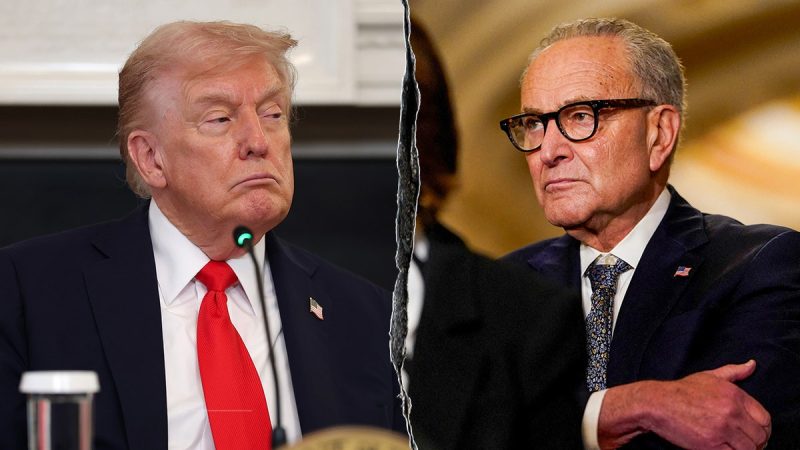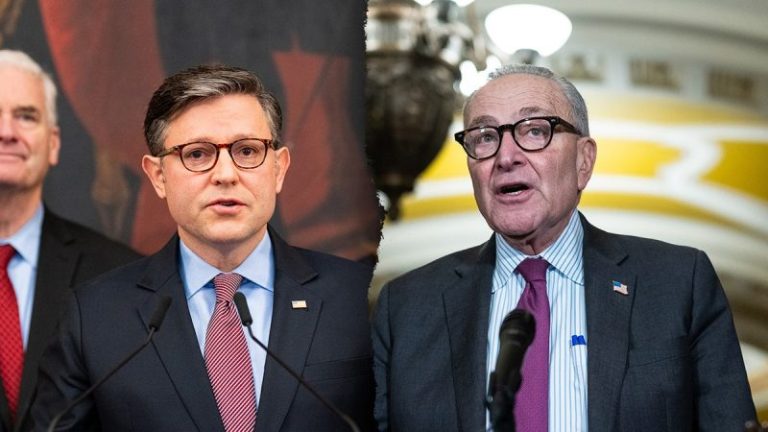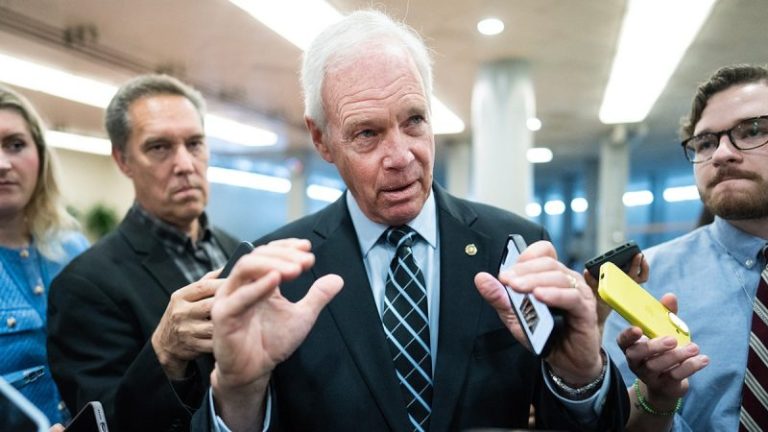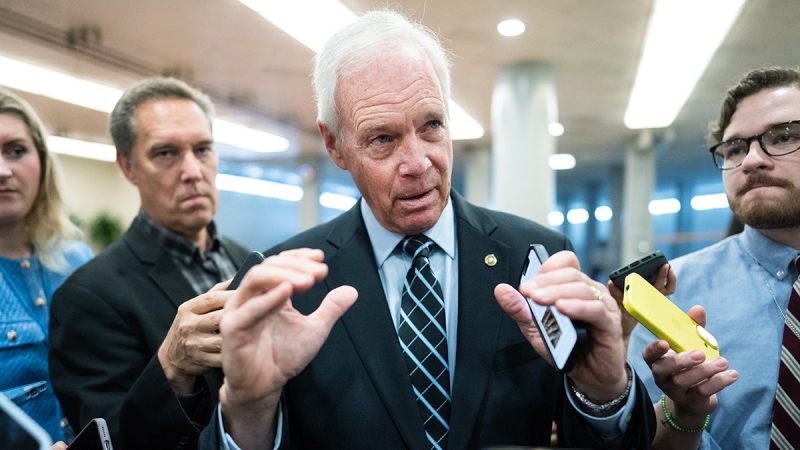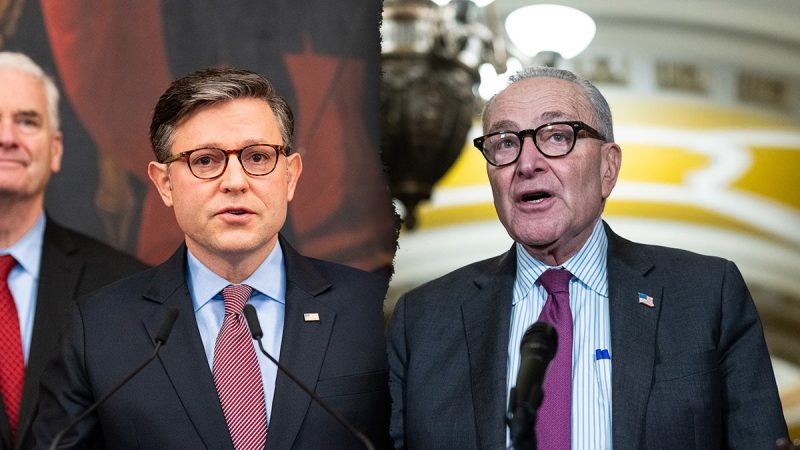
A likely emerging deal in the Senate aimed at averting a prolonged government shutdown could face significant headwinds in the House of Representatives.
Senate Democrats are demanding that funding for the Department of Homeland Security (DHS) be removed from a larger package of six spending bills needed to finish funding the government for fiscal year (FY) 2026. A growing number of senators on both sides appear to be warming to do so, while passing a short-term extension of current funding levels for DHS called a ‘continuing resolution’ (CR).
Any changes to the current legislation would need to pass the House again. With lawmakers there not expected back in Washington until Feb. 2, three days after the Jan. 30 funding deadline, a brief partial government shutdown is all but certain.
Meanwhile, a number of House Republicans are already balking at the prospect of funding DHS through a short-term CR.
The conservative House Freedom Caucus sent President Donald Trump a letter earlier this week signaling that its members would reject attempts to get DHS funding through the House again.
Caucus member Rep. Ralph Norman, R-S.C., told Fox News Digital via text message on Thursday, ‘THE HOUSE DID OUR JOB BY PASSING THE REMAINING SIX APPROPRIATION BILLS TO THE SENATE AND THERE IS NO RATIONAL REASON TO REMOVE DHS FROM THE APPROVAL PROCESS.’
Norman accused Democrats of trying to ‘demonize’ and ‘bludgeon’ DHS, adding, ‘IF THE DEMOCRATS WANT TO SHUT THE GOVERNMENT DOWN, ‘DO IT’!!’
Two sources told Fox News Digital that Democrats and Republicans in the Senate are trying to bridge the divide between a two-week CR for DHS, which Democrats want, and Republicans’ preference for six weeks.
But House Freedom Caucus Chairman Andy Harris, R-Md., told Fox News Digital, ‘The Democrats’ desire to keep millions of illegal aliens in the United States will not suddenly disappear in a week or a month with a Continuing Resolution. Delaying full year funding for the Department of Homeland Security any further is a bad idea.’
And a senior GOP aide close to House conservatives said a two-week CR ‘hands more leverage to Democrats to derail immigration enforcement’ and that ‘we’d be right back here again in two weeks with more crazy demands from the radical Left.’
It’s not just the House’s rightmost flank criticizing the emerging deal, however.
House Appropriations Committee Chairman Tom Cole, R-Okla., told Fox News Digital on Wednesday that a CR, though he did not specify length, ‘would be very unlikely to pass the House.’
Rep. Stephanie Bice, R-Okla., another appropriator and a member of the pragmatic Republican Main Street Caucus, said Thursday that spinning the DHS bill off from the larger package as a CR was the ‘wrong strategy.’
‘We’ve negotiated these bills in a bipartisan fashion. They should pass the [legislation] as packaged by the House. And again, we can negotiate changes that they feel are necessary if that’s their demand. But not funding,’ Bice said.
Democrats have been up in arms over Trump’s immigration crackdown in Minneapolis, demanding stricter guardrails on Immigrations and Customs Enforcement (ICE), part of DHS, in any federal funding bill. The original DHS funding bill, which passed the House, included some of those wins for Democrats, like mandating body-worn cameras on ICE agents and enhanced training for crisis management and public engagement.
But Democrats balked at that bipartisan deal after federal officers in Minneapolis shooting and killing nurse Alex Pretti caused an uproar among progressives. He’s the second of two U.S. citizens killed by federal law enforcement during demonstrations in the Midwest city.
Bice pointed out that risking the fate of the DHS funding bill would risk more than just funding for ICE — which Republicans’ ‘big, beautiful bill’ injected billions of dollars into last summer — and affect other agencies in DHS’ purview.
‘They are threatening to potentially not fund [Transportation Security Administration] agents again, not fund our air traffic controllers again. These folks have already spent 43 days not getting paid under the last shutdown. Holding them hostage because you’re upset about how DHS is operating is not, is, is, it’s ridiculous in my opinion,’ Bice said.
Air traffic controllers are under the purview of the Department of Transportation, one of the five other bills being held up during Senate negotiations.
House Democrats, on the other hand, could be willing to back a short-term CR for DHS.
House Minority Leader Hakeem Jeffries, D-N.Y., told Fox News Digital on Thursday that such a bill would ‘have to be evaluated’ but said his caucus would reject anything that did not put DHS ‘on a path for dramatic, immediate, transformative change.’
Jeffries also told Fox News Digital that he’s been in ‘close communication’ with Senate Minority Leader Chuck Schumer, D-N.Y., as he’s been negotiating with the White House.
‘The White House also knows that the only group of people who speak for House Democrats are House Democrats,’ he said.
The current circumstances put any compromise out of the Senate on shaky ground in the House. Even if the Senate did pass something before the Jan. 30 federal funding deadline, how long any shutdown goes on will heavily depend on how long it takes Speaker Mike Johnson, R-La., to corral House lawmakers on a vote.
And while the legislation itself could likely survive a House-wide vote, Johnson could run into trouble with a procedural mechanism called a ‘rule vote’ needed to allow for debate and final consideration of a given measure.
Rule votes traditionally fall along partisan lines, and Johnson wields just a razor-thin majority of House Republicans. Appropriators like Bice and Cole have not shown any willingness to vote against their own party on rule votes, but House Freedom Caucus members have done exactly that on multiple occasions in recent years in order to block legislation they did not deem conservative enough.
The other option would be to fast-track the bill via a process called suspension of the rules, though it would require raising the threshold for passage from a simple majority to two-thirds, meaning significant support would be needed from House Democrats.
This post appeared first on FOX NEWS





